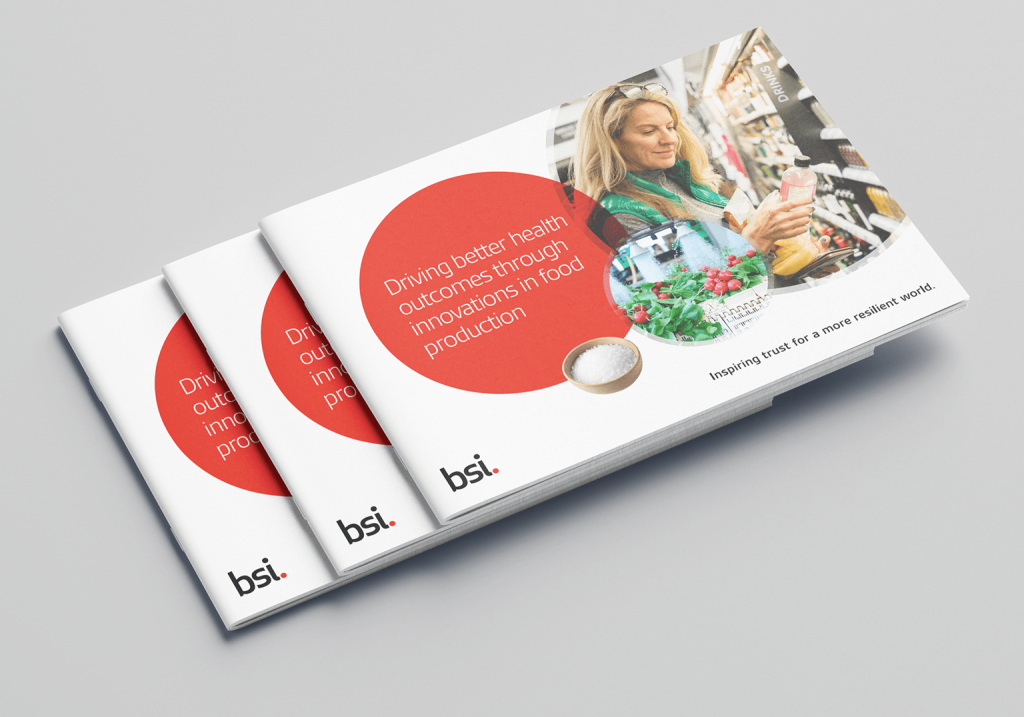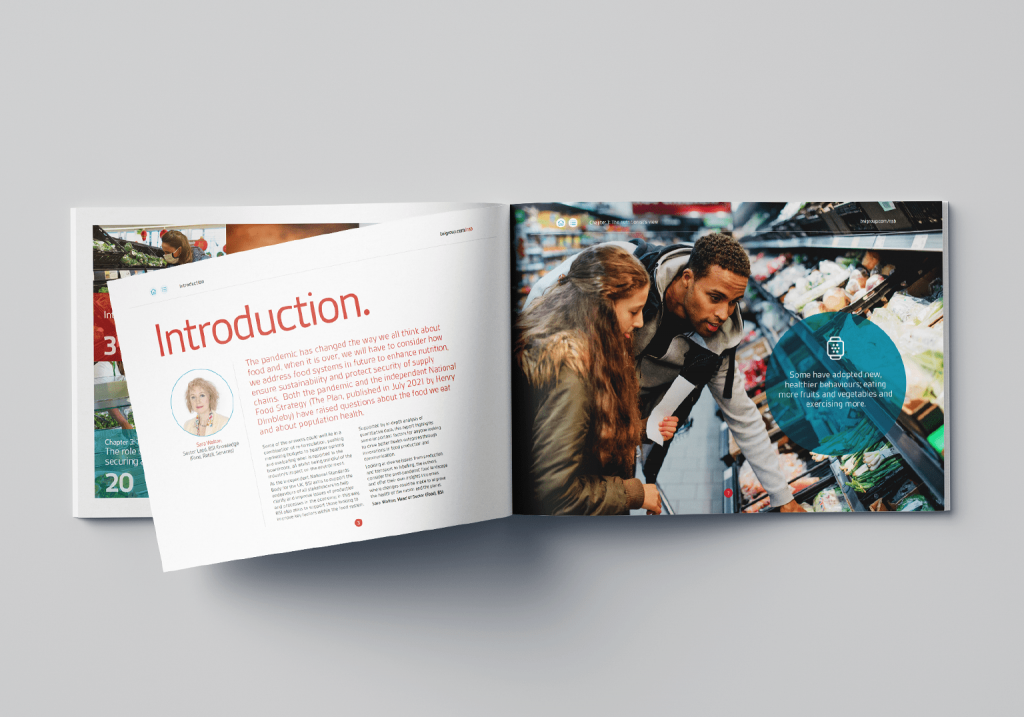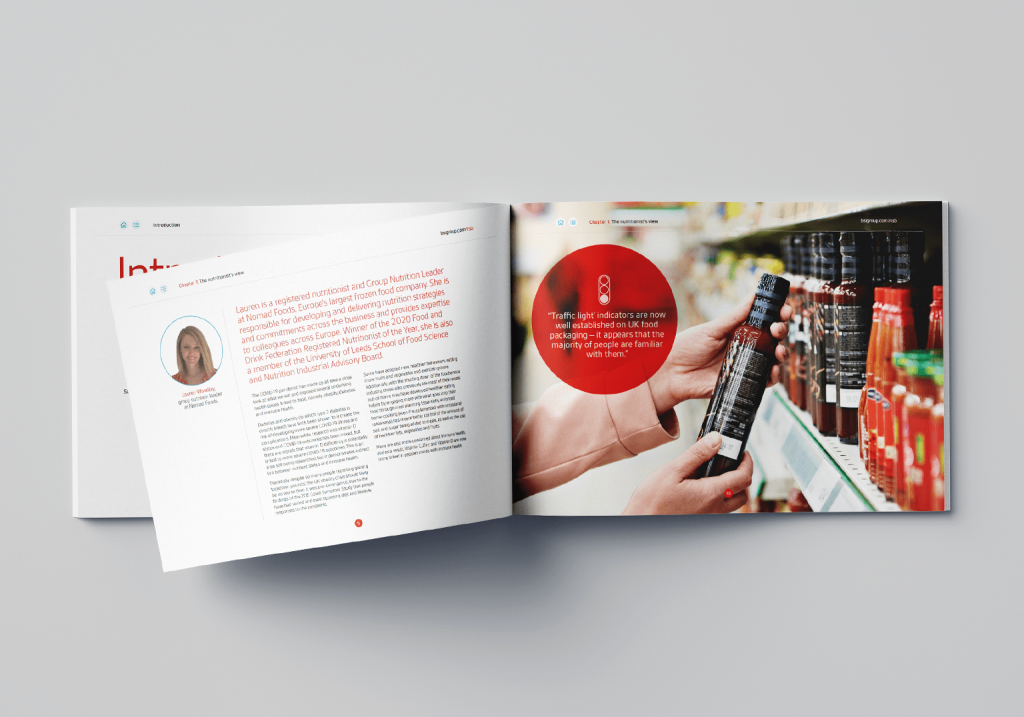Raising standards with the BSI
Content Creation/ Research
Summary
To secure BSI’s place among experts in the food sector, Pelican produced a report which examined changing attitudes to food and its role in our health, food industry innovations that might deliver health benefits, and how the food industry will need to adapt to changing consumer attitudes and legislation.
Tell me more
The British Standards Institution (BSI) is the national standards body of the United Kingdom. It produces technical standards on a wide range of products and services and supplies certification to businesses. When the BSI needed to raise its profile within the food and beverage sector, Pelican was asked to produce a report that would position it as an industry expert.
The challenge
Poor diet and obesity have been cited as factors that compounded the effects of the coronavirus in certain parts of the population. This has increased the focus on the role of food in the nation’s health and it’s the reason why our research is relevant. There is a vocal group that advocates for interventions such as the Sugar Tax and would like to go much further, such as banning HFSS (high fat, salt & sugar) products. At the other end of the spectrum, more laissez faire voices lobby for freedom of choice.
We needed to be careful not to repeat these well-worn arguments, but offer fresh insights backed up with independent research.
The Pelican approach
The Pelican team recommended creating a report that would combine quantitative with qualitative research in the form of articles by industry thought leaders. These leaders were identified in conjunction with BSI, and once agreed Pelican conducted phone interviews to produce each article.
Contributors were: Lauren Woodley, group nutrition leader at Nomad Foods; Rob Percival head of policy at The Soil Association; Stephanie Slater, founder of School Food Matters; and Jo Dyson, former head of food at Fareshare.
To support the qualitative content, we also suggested commissioning an Omnibus Study, with questions influenced by some of the topics raised by our thought-leaders.
The Omnibus captured all key demographic data for the respondents: age, social classification (UK), region, gender, presence of children in the household etc. This meant the answers to each question could be cross tabulated against relevant sub-groups.
Finally, we suggested that Sara Walton, sector lead, BSI Knowledge (Food, Retail, Services) pen the introduction and conclusion to the report, which was then edited by the Pelican team. By including a direct contribution from a senior member of the BSI team we could reinforce the organisation’s expertise.
The results
The BSI team featured the report on its website and used it as a key piece of content for building the credibility of their food and drink team.
Pelican Communications is a specialist sustainability PR agency with expertise in food, packaging, waste, recycling, energy and trade associations.
We provide a range of services including strategy, design, content creation, public relations, CSR reporting, video and animation production plus people development. Contact us for marketing and communications expertise.



